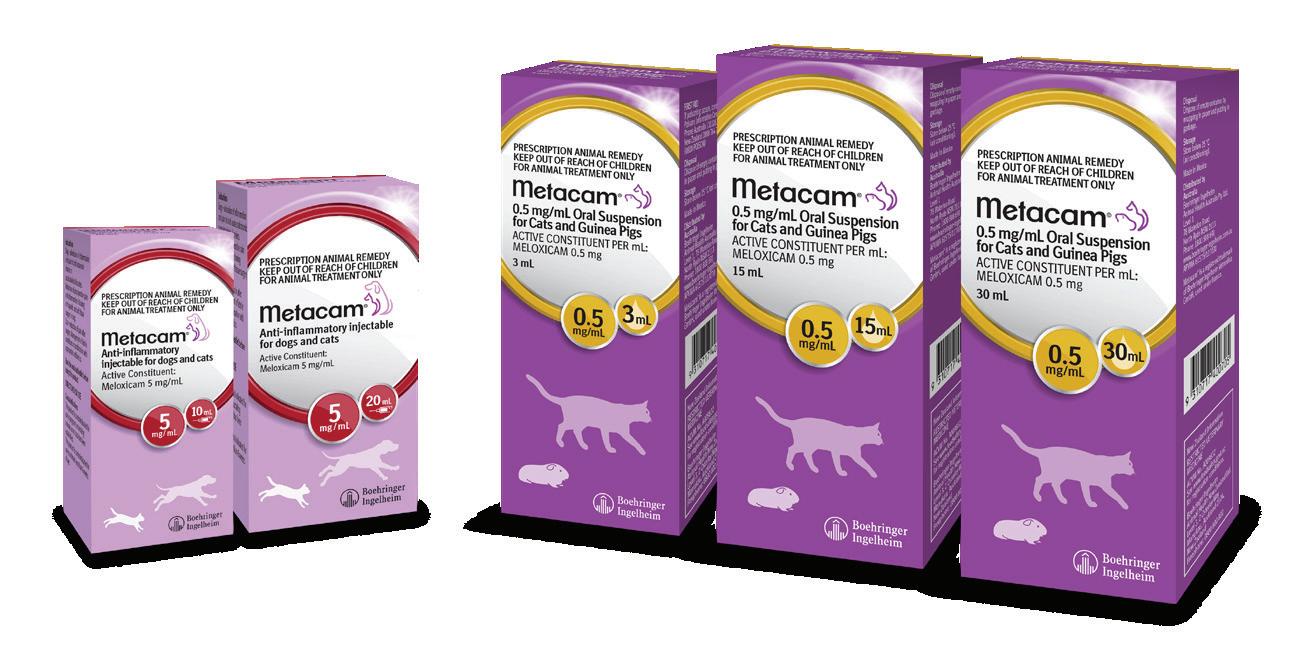
1 minute read
Fast Confident Diagnosis
Find answers under the fur with high-definition wireless ultrasound. Designed for veterinarians, Clarius HD3 Vet wireless scanners bring AIpowered imaging with dedicated animal presets to your iOS or Android device for a confident diagnosis anywhere.
Specialized Scanners for High-Resolution
Advertisement
_in_ruminants.html; accessed 10 February 2014)
7. Merck Veterinary Manual (2012) Pharmacokinetics of Anthelmintics (see http://www.merckmanuals.com/vet/pharmacology/anthelmintics/pharmacokinetics of anthelmintics.html; accessed 10 February 2014)
8. Merck Veterinary Manual (2012) Benzimidazoles (see http://www.merckmanuals. com/vet/pharmacology/anthelmintics/benzimidazoles.html; accessed 10 February 2014)
9.Parasitipedia - Triclabendazole, anthelmintic for veterinary use on cattle, sheep and goats against liver flukes (see http://parasitipedia.net/index. php?option=com_content&view=article&id=251
9&Itemid=2792; accessed 10 February 2014)
10. Webster C.R.L. (2001) Clinical Pharmacology. Teton New Media, USA (pp. 88-91)
11. Mulcahy G., et al. Liver: fasciola hepatica infestation (see http://vetstream.com/equis/Content /Disease/dis01248; accessed 10 February 2014)
Liver fluke can also infect horses11
Horses that graze in persistently wet areas or drink from creeks/rivers are at risk, especially if cattle and/or sheep share the pasture.
Horses are more resistant to liver fluke (F. hepatica and F. gigantia)than either cattle or sheep; however, younger horses are more susceptible than older ones.
Clinical signs
Clinical signs include anaemia, anorexia, ascites, colic, diarrhea, lethargy/weakness, depression, jaundice, ill-thrift and weight loss. Acute clinical signs are unlikely to be seen.
Differential diagnoses include: gastric ulcers, plant poisoning (e.g. pyrrolizidine alkaloids), chronic biliary and hepatic dysfunction, and protein losing enteropathy.
Diagnosis
Diagnosis is based on clinical signs, full blood count and biochemistry profile (e.g. hepatic enzymes such as GGT) and identification of liver fluke eggs in faecal egg tests. Fasciolosis is probably largely undiagnosed as either infections do not reach patency and/or techniques used to detect liver fluke eggs are not a routine part of the parasitological examination of equine faeces.11
Treatment and prognosis
Triclabendazole is the recommended treatment. Treatment failure may be due to lack of a specific diagnosis, resistance to flukicides, and re-infection if the horse is treated and put back onto the infected pasture.
Prognosis is good if the clinical cases are treated; some cases resolve spontaneously without treatment.
Control
It is best to avoid grazing cattle and sheep with horses in wet areas of the pasture.








